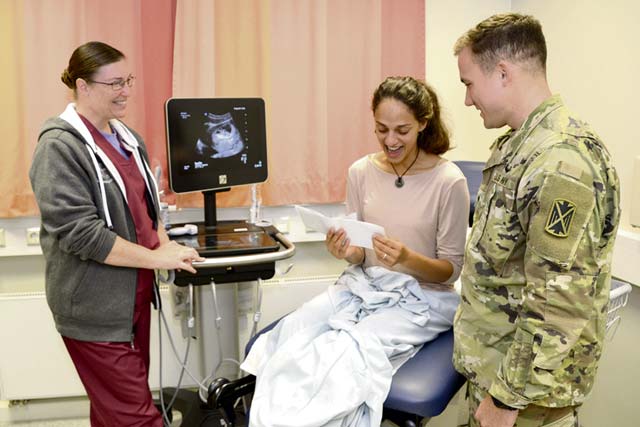
Midwifery has been mentioned since the very beginning in stories, on cave walls and in literature. After all, midwife means “with woman.” Nurse midwives have been practicing in the United States since the 1920s. You may think that midwives only support mothers giving birth in the home setting. But did you know that they can care for women from adolescence to menopause. Midwives practice in hospitals, birthing centers, private practices and serve in the military. In 2016, there were 11,475 board-certified midwives in the United States, and approximately 100 of them were active-duty midwives and several are even men.
A certified nurse midwife is a registered nurse who completed either a master’s or doctoral degree at an accredited midwifery program. CNMs are recognized as independent health care providers with authority to prescribe medication throughout America and U.S. territories. Although nurse midwives are well known for attending births, CNMs also educate patients about pregnancy, nutrition, parenting and newborn care. In addition, CNMs can provide primary care services, annual exams and reproductive care such as prescribing contraception and treating some gynecologic concerns.
According to the National Center for Health Statistics, the percentage of births attended by midwives has increased every year since 1989. In 2014, midwives attended around 330,000 births, up more than 11 percent from 2005.
“I am really glad we saw a midwife today. They are experts in their field,” said Caitlyn Schafer, who just found out she was pregnant during her appointment Sept. 28 at Landstuhl Regional Medical Center. “What better way to feel taken care of than with someone who has focused their education and experience on exactly what I’m going through right now … especially for the first time.”
“Especially with twins!” exclaimed her husband, still smiling after hearing the big news.
“We are so lucky to have nine certified nurse midwives here in the local Kaiserslautern Military Community to help our patients,” Gonzales said. LRMC Deputy Commander for Nursing Army Col. Michelle Munroe, 86th Medical Squadron Chief Nurse Col. Regina Paden and 30th Medical Brigade Chief Nurse Col. Robin Neumeier are all in leadership positions and see patients as well.
The other six CNMs work in the LRMC Obstetrics and Gynecology Clinic — Army Maj. Elizabeth DiCampli, Air Force Maj. Major Lisa Gonzales, Air Force captains Shameka Williams and Laura Segovia, and Department of the Army civilians Katherine Coughlin and Melanie Benson.
“Together, we bring more than 100 years of experience as certified nurse midwives to our patients (in the) KMC area,” Gonzales said. “That translates into a great team of very knowledgeable CNMs that our patients can turn to for help.”
Gonzales explained that National Midwifery Week from Oct. 1 to 7 is a special time to celebrate the work of midwives and midwifery. Midwives will experience a day of pampering and relaxation as well as a traditional blessing of the hands ceremony, a symbolic way to ask that the hands that work so hard will continue doing their good work.


